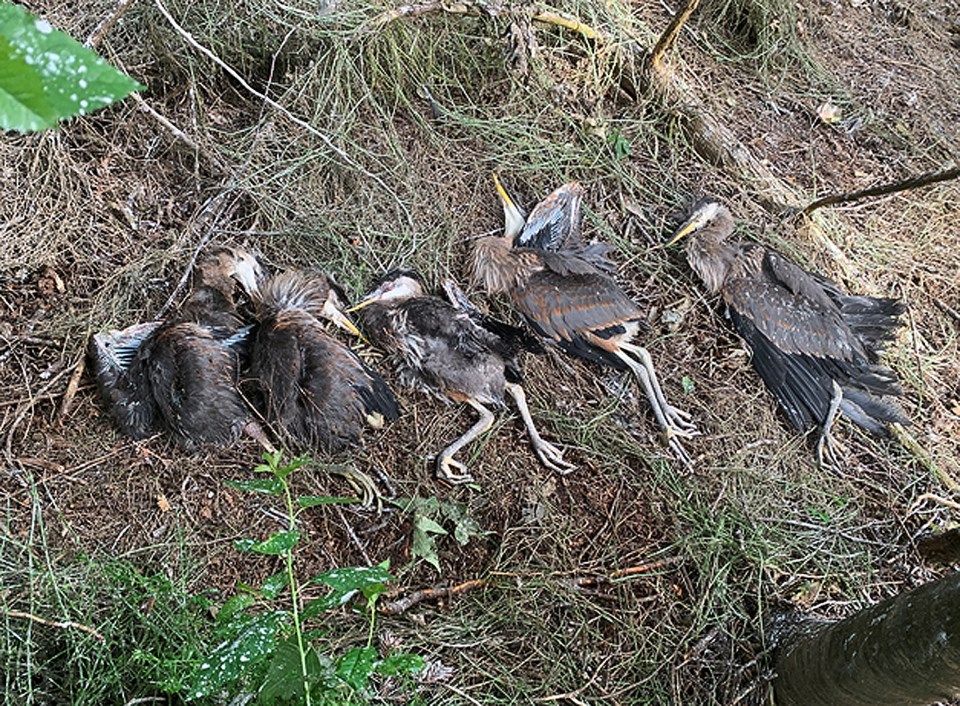Wildlife Rescue Association of B.C. says more than a dozen protected heron fledglings died this week in Tsawwassen due to deforestation.
In a news release, the wildlife group says it received a call from a frantic man who witnessed a large tree with three visible Great Blue Heron nests falling at the Tsawwassen First Nation.
The soil was unstable due to trees currently being cut down at the top of the hill, the group notes, adding the first falling tree struck neighbouring trees on the way down, causing deadly damage to many nests filled with fledglings.
Wildlife Rescue says its response volunteers and the TFN resource coordinator joined at the rookery quickly.
They found over a dozen fledglings dead and six in critical condition, rushing them to the Wildlife Rescue hospital.
“These babies were unable to make the jump or take flight when the trees fell. There were a couple of fledglings who were probably already on the ground that were healthy, in good condition, and able to make their way to safety.
The living babies received a thorough examination that indicated severe pelvic fractures, wrist fractures, destroyed vision, inability to walk or stand, central nervous system trauma, and severely low blood markers. This intense impact caused extensive fractures and internal damage that growing babies cannot survive.
Unfortunately, only two of the six fledglings made it through this tragic occurrence and are under hospital care. Wildlife Rescue staff and volunteers are working hard to ensure these lucky two have a chance at returning to the wild and continue their natural journey to adulthood,” according to Wildlife Rescue.
The rescue group notes that while Great Blue Herons are protected by the Migratory Bird Act, they still face many threats.
“The young herons saved by Wildlife Rescue in this tragedy are just a small example of this. British Columbia’s continual deforestation has led to fewer nesting spots for all species. The tree that toppled over recently had weak roots due to recent deforestation. By chopping down trees the soil is disrupted, leading to unbalanced trees.”
Wildlife Rescue also notes keeping healthy trees in place is an excellent way to guarantee that herons have enough nesting spots.
“The recent events in Tsawwassen are grave, and there is still much we can do to make sure these incredible birds stay safe. By leaving trees, avoiding nests, and using environmentally friendly products, Great Blue Herons will be a little bit safer.”



